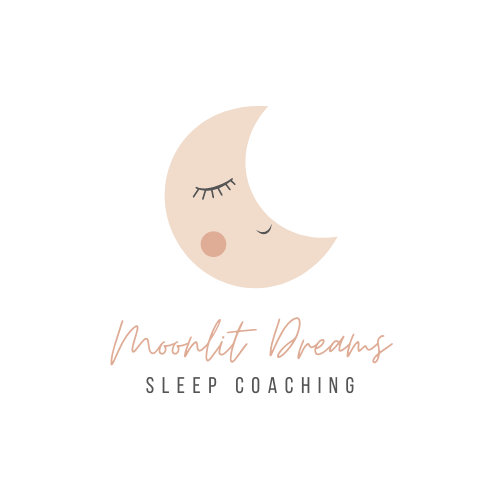Hey new parent, I see you, I understand you, and I’ve been you! This role is not easy by any means, and anyone who’s ever told you that it is, can go F themselves! (just kidding….sort of…). I’m sure you’ve heard some version of “get ready to never sleep again” 1,000 times since the moment you told people you were welcoming a baby. First of all, I hate that people say that. Like you’re not anxious enough about all the things that come with a baby, but now you have to hear people putting negative connotations on something that all of us value so much?! (Those people can go F themselves too haha!) Second of all, that does not have to be your reality! While the sleep game can be tough for those first twelve weeks, it does not have to be something that you battle with for the rest of your child’s life. In this blog I am going to touch on the 5 five mistakes that I often see new parents making (and ones that I’ve personally made as a new parent!), so that maybe this can help you avoid making them, or avoid repeating mistakes that you might have made with your first child(ren)!
You’ve accepted that sleep is going to suck for a while or even forever
WRONG! Like I said, those first twelve weeks can be tough. You’re trying to navigate through all of the things that come with a newborn; understanding their sleep being one of them. If you take the right approach to understanding their sleep and providing them with the proper tools to become strong independent sleepers from the get go, then you are going to find yourself in a much better place than most parents come week 12. Set your mind right, and say it with me; “I can do this. It will not be like this forever. Sleep is in my future.”
Heavily relying on props or assistance to get your baby to sleep
I get it, sometimes we get to a point where we’re desperate for sleep and we will do literally ANYTHING to get our little ones to finally close their eyes. A lot of time, parents will resort to a prop or some sort of assistance to get them there. Something like, a Snoo, a baby swing, rocking, or bouncing for motion based sleep are pretty common. Feeding to sleep is the most common, and frankly, the easiest habit to form with a newborn. A good way to avoid that is by following an eat → play → sleep schedule (I touch on this a bit more later). There are even times where I will see parents co-sleeping just so they can get some shut eye too, and I STRONGLY advise against that due to the simple fact that it is an unsafe sleeping practice, and environment, for babies of all ages. Contact naps are fine, as long as you, or whoever is holding your little one, is awake and alert. If you start to fall asleep, it’s time to transfer that baby off of you and into a safe sleep space.
Avoiding props or crutches to get them “to sleep”, is one of the #1 things I tell new parents. If your baby learns to fall asleep by nursing, rocking, or the use of a prop (like we did with our daughter’s pacifier – ugh!) then that is going to be the only way they know HOW to sleep. This is why a lot of parents see sleep regressions happen. For example, right around 12 weeks, babies’ sleep changes from stages to cycles. If they have not learned to fall asleep independently, they are going to wake after each cycle looking for the support that they are used to getting to fall back to sleep.
Some assistance is fine, as long as you’re balancing! I always recommend splitting your newborn’s daytime naps between assisted and unassisted. Assisted meaning, in the stroller on a walk, in the car, or a supervised contact nap. An unassisted nap would be in their crib, bassinet, pack n play, or whatever their permanent sleep space is. Balancing between the two does a few things. 1. Adding in those assisted naps helps to ensure your little one is getting the daytime sleep that they need in order to avoid becoming overtired. If you know that your baby sleeps longer while they’re in the stroller on a walk, then factor that in when you can. 2. Ensuring that you’re factoring in unassisted naps helps your little one start to get used to their permanent sleep space, and to practice sleeping independently.
I always recommend their first nap of the day be unassisted, and in their permanent sleep space. It’s almost always going to be the most consistent, because your little one is likely waking around the same time everyday, so it’s easier for you to plan for that first nap to be at home or in a permanent sleep space of sorts. It also ensures that they are coming off of a night of rested sleep, so that they are not going into that first nap overtired. Once your little one starts to master that first nap, unassisted, then make that 2nd nap unassisted, then the 3rd after that. If you’ve continued with this starting at birth, then once you get to 5 or 6 months, your baby will be able to take long consolidated naps completely unassisted.
Ignoring proper awake windows and daytime sleep needs
From birth to 12 weeks of age, your baby needs 16 hours of sleep in a 24 hour period. This includes both naps and overnight sleep, while factoring in overnight wake-ups for feeding. Your newborn should also not exceed a wake window of 45-60 minutes. This means, if they woke for the day at 7am, then they should be asleep for their first nap no later than 8am. You’re probably thinking, that leaves 0 time to do anything with them, and you’re absolutely right and it’s completely normal! Newborns can’t handle much more than eating, burping, and maybe some tummy time before they are ready for sleep again. (For more info on wake windows and sleep needs for children from 0-13+ months, download my Total Sleep Needs by Age Chart here)
Paying attention to their awake windows, and ensuring that they are getting the proper amount of daytime sleep, helps to avoid them becoming overtired. An overtired baby is a parent’s absolute worst nightmare. When your baby is overtired, their bodies start firing off stimulant hormones that then keep them awake, and fighting sleep. This is why, if you’ve missed an awake window, your little one will be irritable, have a very hard time settling, or even become inconsolable. Having a child who is overtired can cause a vicious cycle of irritability, short naps, overnight wakings, and early morning wakings. Avoiding this will also help set you up for a successful overnight with fewer wake-ups that are unrelated to hunger.
Feeding on demand
This is something I see a lot especially with newborns, and is often a result of an overtired baby. From birth to 12 months of age, babies need 24-32oz of breastmilk or formula in a 24 hour period. Even when you start factoring in solids, this number never changes. What changes is the amount that they can consume per feeding. From 0-3 weeks, your baby’s stomach is only the size of a walnut and they can only consume 1-3 ounces every 2-3 hours, which usually equates to 8-12 feedings a day. (For more info on your baby’s tummy size check out my Tummy Chart here!)
If your baby starts crying 45 minutes after a full feeding, it’s likely because of something other than hunger. If it’s been over an hour since they last woke up, then you’re dealing with an overtired baby. If they’re not ready for another nap, it could be gas, or some other form of discomfort. As new parents, we’re so quick to feed our babies immediately after they start crying, because we think “what else could they possibly need?!” This will then result in feeding on demand, which can cause things like frequent spit-ups, gas, and reflux. It’s like filling your gas tank, driving for 2 miles, then trying to fill it up again. What happens? It overflows! The same thing happens to your baby. If there’s no room left in their tummy, it’s just going to come right back up, which causes even more upset. A great way to avoid this is by feeding every 3 hours, and like I mentioned before, following an eat → play → sleep schedule. This helps to ensure that they are waking rested and hungry and their tummies have time to digest before going back to sleep. Plus, it avoids feeding to sleep since you fed them when they woke up, and not before a nap.
I hope calling out these 5 common mistakes was both eye opening and educational! Remember, you got this, and no one knows your baby better than you. Do you, boo boo!
Finding that you need some more guidance, or that you’re just doing your due diligence to prepare yourself for parenthood? Download my Newborn Survival Guide eBook here for FREE! It includes more tips, charts, and daily sample schedules, to help guide you through those first 12 weeks.

